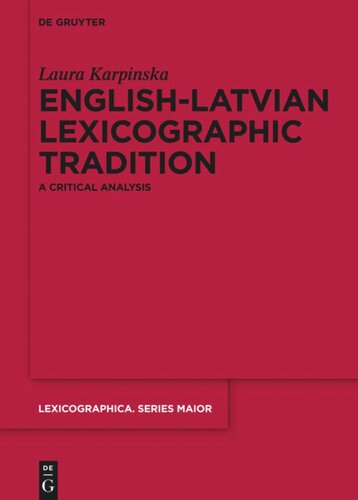

Most ebook files are in PDF format, so you can easily read them using various software such as Foxit Reader or directly on the Google Chrome browser.
Some ebook files are released by publishers in other formats such as .awz, .mobi, .epub, .fb2, etc. You may need to install specific software to read these formats on mobile/PC, such as Calibre.
Please read the tutorial at this link: https://ebookbell.com/faq
We offer FREE conversion to the popular formats you request; however, this may take some time. Therefore, right after payment, please email us, and we will try to provide the service as quickly as possible.
For some exceptional file formats or broken links (if any), please refrain from opening any disputes. Instead, email us first, and we will try to assist within a maximum of 6 hours.
EbookBell Team

4.0
66 reviewsSince 1987 when the first English explanatory dictionary fully based on corpus evidence was published, considerable changes related to the choice of lexicographic evidence have affected the field of lexicography. On this background (even though the volume of the lexicographic material is ample) the English-Latvian lexicographic tradition looks rather traditional and even somewhat stagnant. Thus, there is an urgent need for a detailed analytical inventory of English-Latvian dictionaries in order to facilitate new dictionary projects.
This book provides a comprehensive survey of the development of the English-Latvian lexicographic tradition considering the various extra-linguistic factors which have influenced it. It studies the typical features of English-Latvian dictionaries traced throughout the tradition at the levels of their mega-, macro- and microstructure, pinpoints the problematic aspects of English-Latvian lexicography and offers theoretically grounded solutions for improving the quality of future English-Latvian dictionaries.